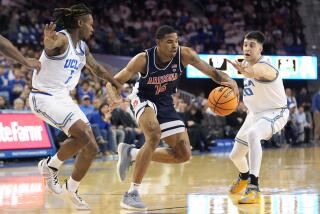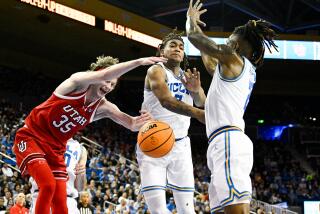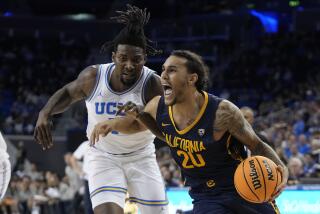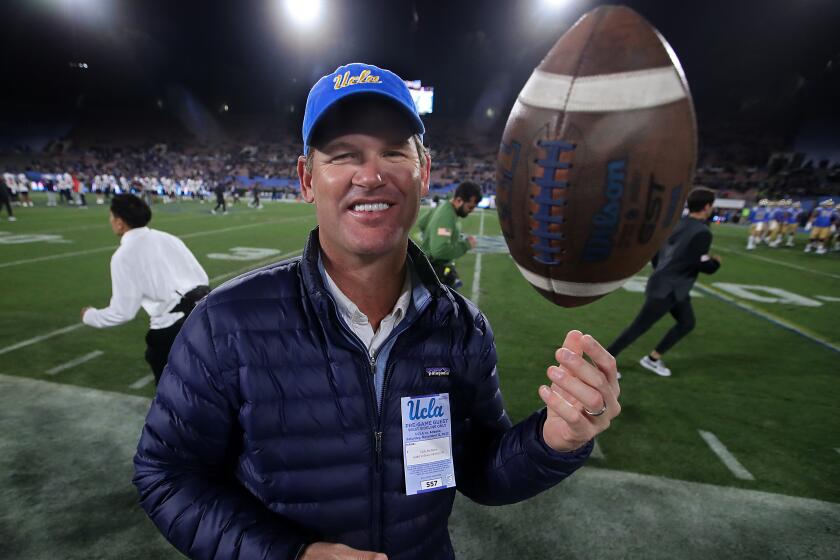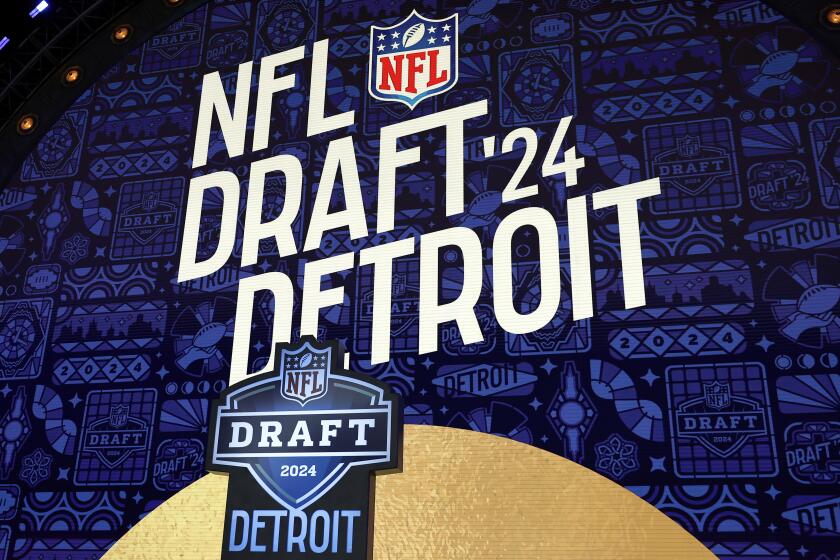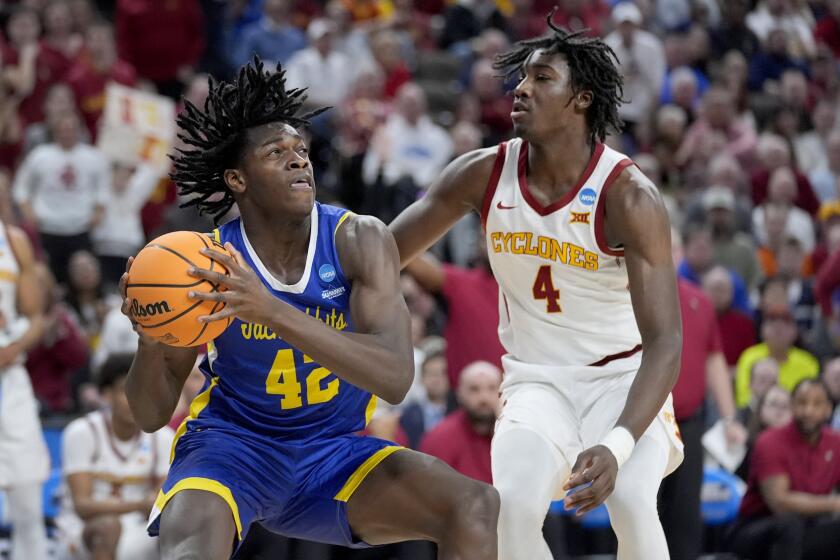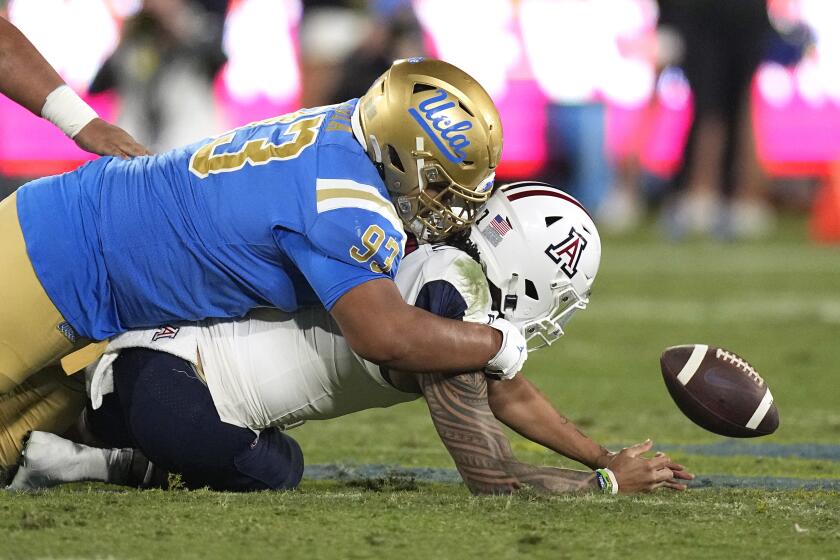With four games remaining, UCLA is in danger of not qualifying for bowl game
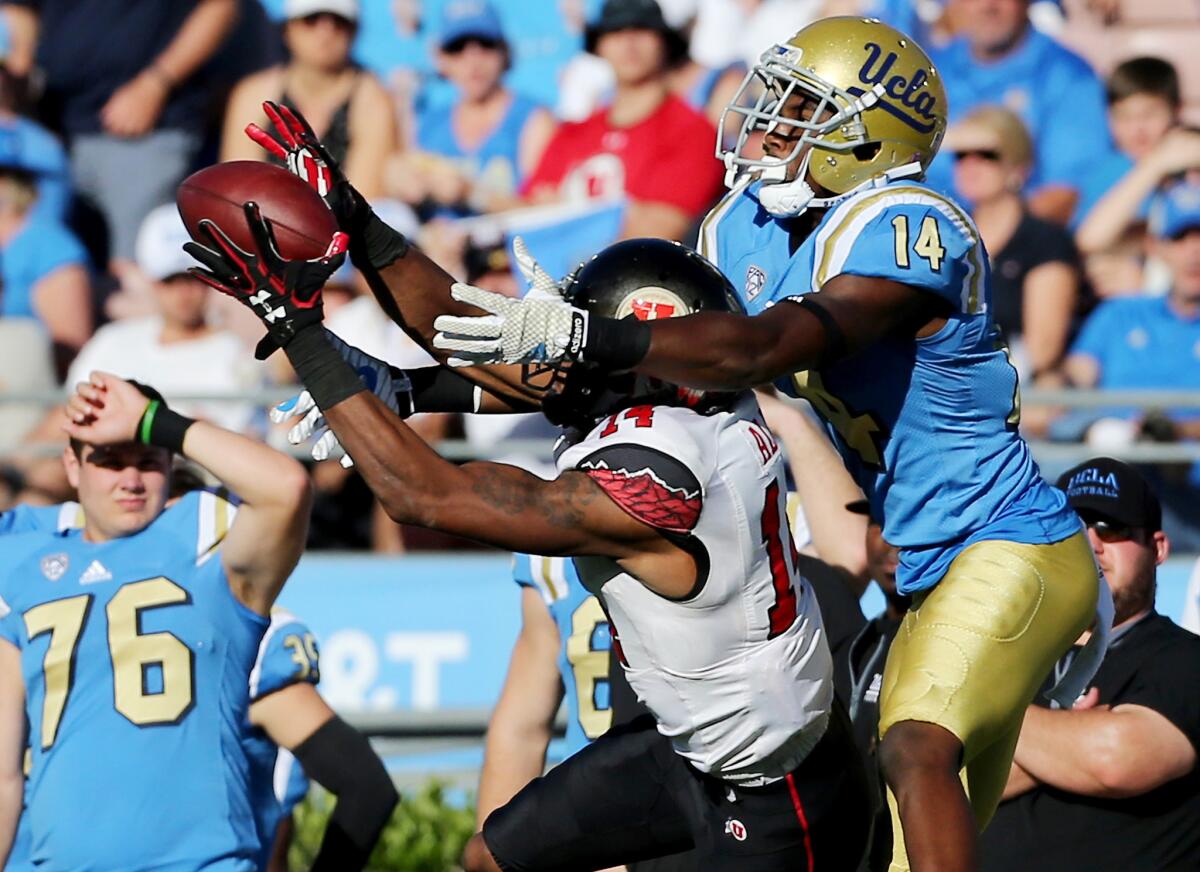
UCLA is safe from another loss this week. The Bruins don’t play.
They can spend the next 10 days contemplating what to do about the lowest point of the Jim Mora era. UCLA (3-5 overall, 1-4 in Pac-12 Conference play) has lost three consecutive games for the first time since the end of the 2012 season, Mora’s first on campus. The Bruins have dropped four of five games for the first time since the end of the 2011 season, Rick Neuheisel’s last before getting fired.
Mora’s job doesn’t appear to be in jeopardy given the considerable cachet he built upon his arrival at UCLA, when he tied Terry Donahue’s school record with 37 victories over a four-season span.
A sixth consecutive bowl appearance for the Bruins, however, is in serious peril. They need to go 3-1 just to become bowl eligible barring a Nebraska-style backing their way into the postseason with a losing record as the Cornhuskers did last season because of a lack of teams with .500 records to fill a record 80 bowl slots.
UCLA’s next opponent, Colorado on Nov. 3 in Boulder, doesn’t appear poised to become chicken soup for the soul. The Buffaloes (6-2, 4-1) are tied with Utah atop the Pac-12 South Division after beating defending conference champion Stanford by the baseball score of 10-5.
The Bruins will close the regular season with games against Oregon State (2-5, 1-3) and USC (4-3, 3-2) at the Rose Bowl followed by a game at California (4-3, 2-2). UCLA might be favored to beat only the Beavers.
Bruins quarterback Josh Rosen’s status remains in doubt after his backup, Mike Fafaul, disclosed Saturday that Rosen was “still struggling with his shoulder” and the team had known since early in the week that Rosen would not play against Utah.
Mora said he did not consider UCLA’s break a full bye week because its next game comes the following Thursday but noted it could be beneficial “if we manage it the right way.” Players said they would use the extra time off to study for midterms, rest worn bodies and mentally regroup.
“We just keep our heads together and just say we’ve got to execute and try to kill off the outside noise,” tailback Bolu Olorunfunmi said. “At the end of the day we’re still a family and we still have games left to play, so we’ve got to finish them out.”
Run aground
UCLA decided the best way to improve its running game was to make it disappear. It worked, in a sense.
The Bruins passed for 464 yards Saturday during a 52-45 loss to Utah and their running game now barely registers among Football Bowl Subdivision teams. UCLA is averaging 85.5 yards rushing per game, No. 128 among 128 major-college teams.
The Bruins gained 46 yards on the ground in 16 carries against the Utes, with six of the running plays originating as pass calls that turned into quarterback runs.
UCLA offensive coordinator Kennedy Polamalu said Olorunfunmi, who gained 24 yards in nine carries, was the featured tailback because “he was the healthiest.” Soso Jamabo lost one yard in his only carry and Nate Starks did not carry the ball.
Polamalu was evasive when asked whether UCLA was abandoning the run the rest of the season.
“We’re always going to commit to balance,” said Polamalu, who is also the Bruins’ running backs coach.
Seventy passes is balance?
“Competitive edge, I’m going to tell you a balance,” Polamalu said. “But I’m going to find the best way to win and I thought the best way to win [Saturday] was to throw the football.”
Bad management?
UCLA might have cost itself three points Saturday when the Bruins decided to pass instead of run after an interception by linebacker Jayon Brown gave them the ball at their own nine-yard line with 61 seconds left in the first half.
Fafaul threw two passes, the second of which was intercepted by Utah cornerback Brian Allen, leading to a 45-yard field goal that gave the Utes a 27-21 halftime lead.
Polamalu said he was sticking with what worked, even if it didn’t in that instance.
“When you call plays, you don’t regret,” Polamalu said. “You’re trying to advance the ball and get into the end zone. Our kids know that and they know the gains and the chances. But they’re not chances. They’re prepared opportunities.”
Twitter: @latbbolch
More to Read
Go beyond the scoreboard
Get the latest on L.A.'s teams in the daily Sports Report newsletter.
You may occasionally receive promotional content from the Los Angeles Times.
